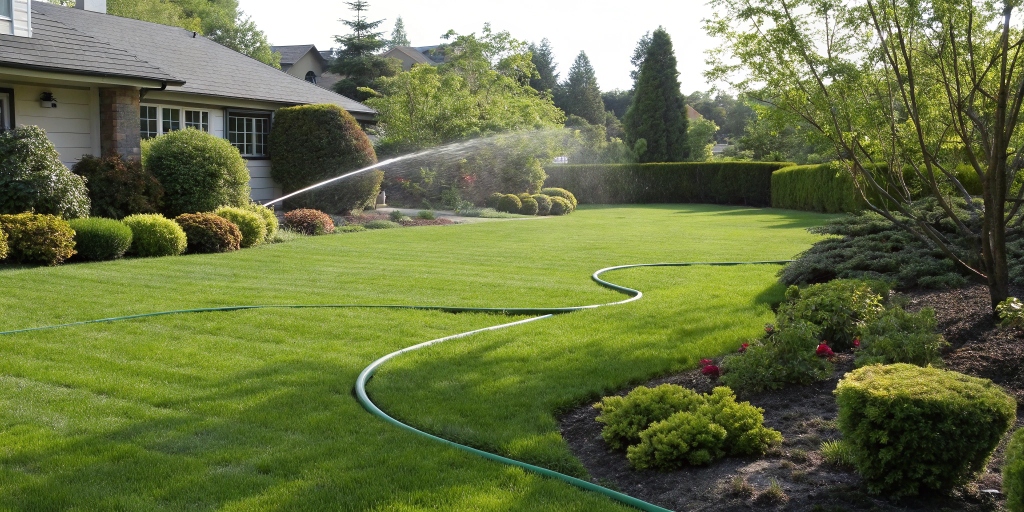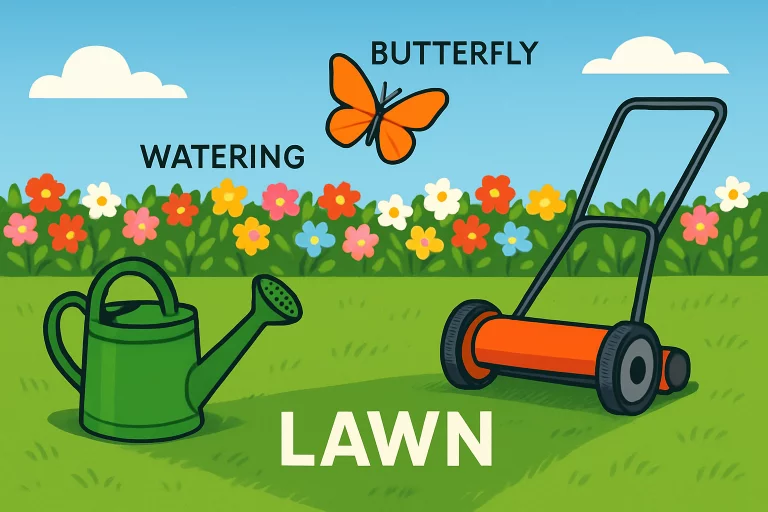Having a lush, green lawn not only enhances curb appeal but also supports sustainability. Smart, eco-friendly practices can strike a balance between environmental responsibility and beauty, boosting yard vibrancy, supporting local ecosystems, enhancing soil health, and conserving water. For those seeking comprehensive guidance, professional lawn care Grapevine is an invaluable resource, offering expertise and regular maintenance needed for truly sustainable results. The simple strategies outlined below will set your lawn on a journey to lasting health, all while minimizing your environmental impact.
Making informed choices in lawn care is crucial for long-term success. Trust professional recommendations and local guides. Practical actions, such as selecting suitable grass species and minimizing chemical use, promote biodiversity and improve water quality. Adopting these approaches will enhance property resilience and value for years to come.
Choose the Right Grass
To maintain a thriving lawn, select a grass variety that is well-suited to your region’s climate, rainfall, and soil conditions. Native and drought-resistant grasses, such as buffalo grass or fine fescue in the northern areas and Bermuda grass or zoysia in southern climates, are more tolerant. Evaluate sunlight, drainage patterns, and soil pH and nutrient content before planting. This not only simplifies lawn care but also enhances ecological resilience, thereby reducing the need for ongoing upkeep and resources.
Mow Properly
Proper mowing is more than just a matter of aesthetics, as it’s crucial to maintaining your lawn’s long-term health and vigor. Set your mower blade to cut high, ideally between 3 and 4 inches, to encourage deep root growth, which increases drought resistance and crowds out weeds before they can take hold. Frequent mowing in this setting allows grass to photosynthesize more efficiently, resulting in thicker and more robust blades. Always avoid removing more than one-third of the grass height at a time to minimize stress, especially during periods of heat or drought. Instead of bagging, leave clippings on the lawn, a sustainable practice called grasscycling, which returns vital nutrients to the soil and reduces the need for external fertilizers.
Water Efficiently
Smart watering practices can significantly improve a lawn’s health. Water deeply, but less frequently, at a rate of about one inch per week, including rainfall, to promote deep root systems and enhance drought tolerance. Water early in the morning to reduce evaporation and allow the grass time to absorb moisture. Consider capturing rainwater for irrigation and using soil moisture meters or weather-based controllers for optimized watering schedules. For expert tips tailored to your region’s specific needs, explore the EPA’s detailed advice on Landscaping Tips.
Fertilize Naturally
Natural alternatives to synthetic fertilizers are recommended for soil health and sustainability. Compost, well-aged organic fertilizers, and compost tea are effective for nurturing microbes and releasing nutrients. Aerate the lawn before application to maximize their effectiveness. Compost tea is an eco-friendly foliar spray or root drench. A steady feeding plan that builds soil organic matter improves lawn resilience to weather and disease, promoting lush growth.
Aerate Regularly
Over time, foot traffic, rain, and regular use can compact lawn soil, preventing oxygen, water, and nutrients from reaching roots. Aeration, a simple process, can breathe new life into compacted lawns. Annual aeration, preferably in fall or spring, is recommended for larger properties. Aerating before overseeding or spreading compost helps seeds and nutrients settle into loosened soil. Regular aeration promotes greener grass, improves water infiltration, and supports deeper root systems.






